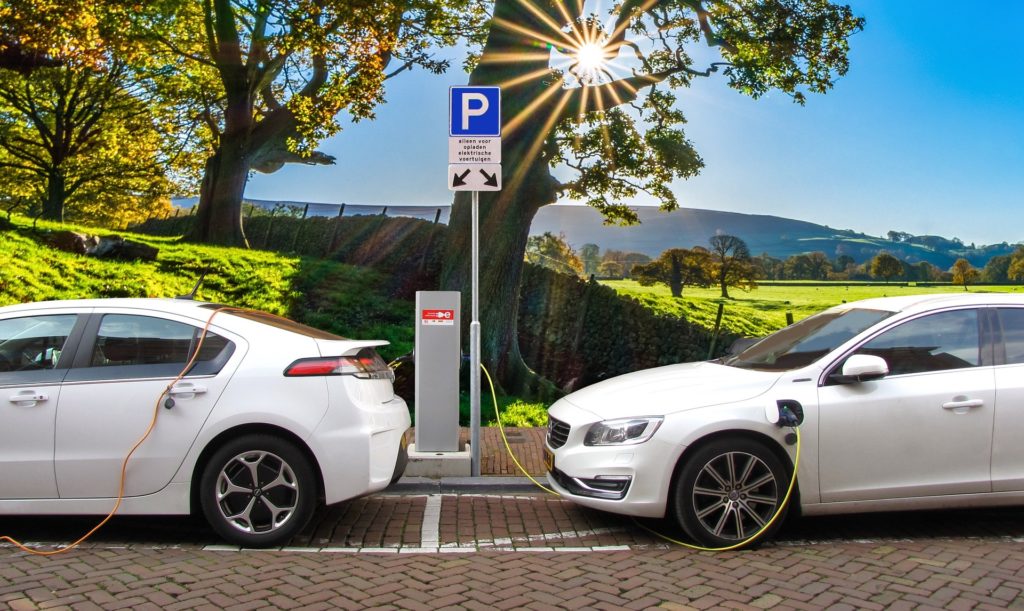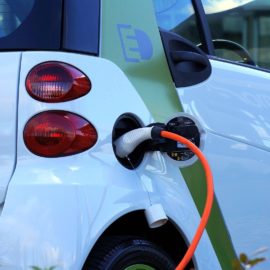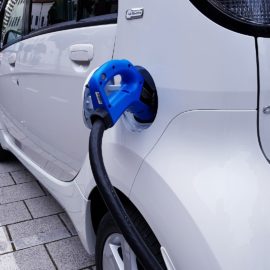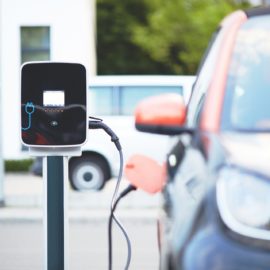
I would like one and my son has one. Electric cars are the wave of the future and if the administration has success charging stations will be built around the country. First of all the companies need a standard charger.
Making electrical vehicles affordable should be among the top priorities for automakers so that the average vehicle-buyer can purchase one, said Jim Farley, Ford Motor Co.’s president & CEO. “I’m deeply worried about the affordability,” said Farley Saturday during a discussion as part of the Detroit Homecoming VIII events, during a live-streamed interview with Mary Kramer, the director of the annual event. “Average people cannot afford these vehicles and we have a lot of work to do to make them more affordable. … That’s the one that keeps me up at night.” Detroit Homecoming has been an annual event, since 2014, which brings notable ex-Detroiters back to the city to inspire city residents and re-engage them through their individual accomplishments and achievements. Regarding electric vehicles, Farley said Executive Chairman Bill Ford “had a vision for this 20 years ago.” “The (EV version of the F150) is completely sold out in Europe … in the U.S, in China,” said Farley, whose grandfather worked at the Rouge plant. “We have 150,000 orders and the truck isn’t just fast … it’s very fast but it can power your house for three days. I think this will really change electrification.”
detroitnews.com
The question was what do consumers wanted trucks, not commuter cars.
Farley added that “the first generation of electric owners don’t work small commuter, economy (vehicles). … They want Mustangs, they want pickup trucks, they want utility vans,” said Farley. “They want the best products.” He said a key issue is how production will impact labor concerns since it costs 30% less to manufacture the electrical vehicles. There also is an issue of battery supply and minerals such as lithium and cobalt to power them, said Farley. “We have to bring battery production here, but the supply chain has to go all the way to the mines. That’s where the real cost is and people in the U.S. don’t want mining in their neighborhoods,” said Farley. “So are we going to import lithium and pull cobalt from nation-states that have child labor and all sorts of corruption or all we going to get serious about mining? … We have to solve these things and we don’t have much time.”
Farley, who lives in Detroit, is a fixture in the city. He is involved in civic matters.
Farley, who lives in downtown Detroit, said he is proud of the continued work on the Michigan Central Station, which Ford Motor Co. bought in 2018. “We have some fantastic plans and not just for innovation and mobility,” said Farley. He said there are plans to renovate some of the Riverwalk extension and nearby. He did not go into details about it during his discussion with Kramer. The train station had closed in 1988 and was abandoned for several decades before the automaker announced plans to buy and restore it as well as the nearby Book Depository. Farley said the purchase and renovation project was “Bill Ford’s personal vision” for the neglected train station. “I think we’re all kind of fed up with about what happened to the train station,” Farley said. “Someone had to step up.”
Cars need highways and Farley has plans for roads as well.
Farley said the company is also exploring an autonomous highway that will run down Michigan Avenue through Detroit, Dearborn and then ending in Ann Arbor. He did not release more details on it but said local governments will have to be on board with it. “Autonomy is taking longer than we thought,” said Farley. “But we still have to solve the second-order problems. Like do we have dedicated infrastructure for our autonomous vehicles? I don’t think we should wait for regulators to make up their mind. We have to solve this as companies.” Farley also spoke about his work with the faith-based Pope Francis Center to assist homeless Metro Detroiters with programs that help them with housing, health care and other issues such as addiction.
Ford’s sales are down, as are other car companies as well as other sectors in the country. Locked down why do you need a new car?
Ford Motor Co.’s U.S. sales plunged by one-third in August compared with the previous year amid an industrywide slide driven by a semiconductor shortage that has dragged on since late last year and pushed new-vehicle inventories to historic lows. While Ford’s sales slump was more dramatic than that experienced by some of its competitors, it was not alone. American Honda sales, for example, were down 15.6% year-over-year. Toyota Motor North America sales fell 2%. And Hyundai Motor America sales were off 4%. Ford reported that its average transaction price in August hit a new record of approximately $50,800 per vehicle, a $9,700 increase over last year. According to production data reported by the company, output improved from July to August. Amid widespread production cuts due to the chip shortage, Ford’s North American plants produced 125,736 vehicles in July. In August, that rose to 226,065. The company’s gross vehicle stock stood at 214,500 at the end of the month. The Dearborn automaker made a $561 million profit in the second quarter.
Where, other than Detroit, could this story come from. I read it in the Advocate this morning and feel with our interest on climate change this may, eventually, be a help.



